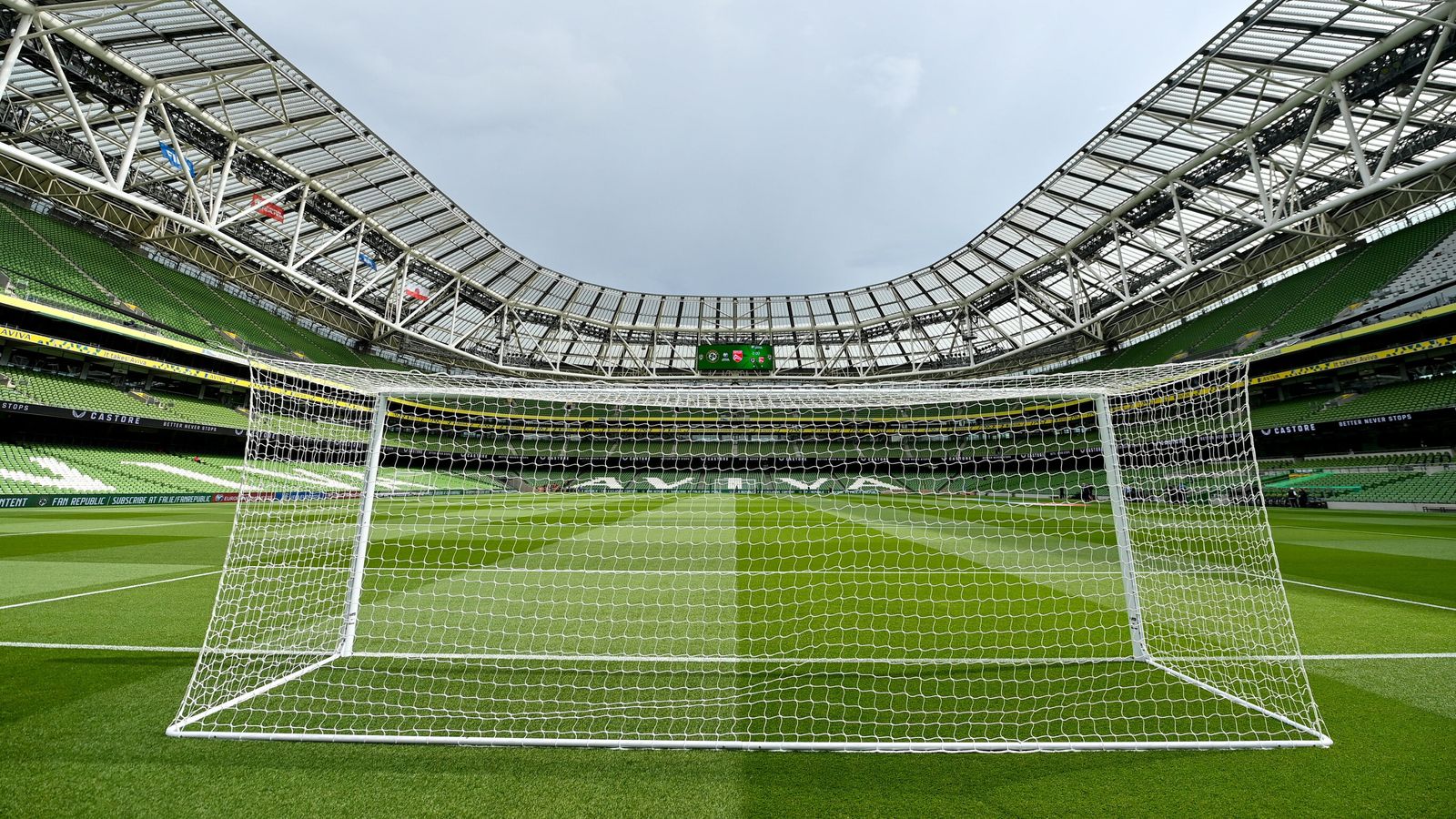Spain
FIFA Probes Alleged Racism In Two International Matches

FIFA Probes Alleged Racism:
The beautiful game is stained by bigotry in two international matches, shockingly. The Republic of Ireland U21s and Kuwait U22s match in Austria was unexpectedly canceled after a severe charge. A Kuwaiti player allegedly racially abused an Ireland replacement. The Football Association of Ireland intended to submit this event in a tier two friendly to FIFA, laying the groundwork for a comprehensive inquiry.
The senior international match between New Zealand and Qatar in Austria ended early. The New Zealand Football Association said that black player Michael Boxall was racially abused in the first half, raising worries about racism in the sport.
FIFA’s Stance And President’s Directive
FIFA reiterates its “zero tolerance” stance against racism while it investigates these disturbing events. This promise matches FIFA president Gianni Infantino’s previous pronouncements emphasizing the need to combat racism. Infantino openly said, “There is no football if there is racism, so let’s stop the games,” highlighting the seriousness of the issue.
Infantino’s order is actionable. According to him, referees are crucial to game integrity. Infantino advised referees to halt games if racism or prejudice occurs. This decision comes as football is under investigation for its on- and off-field reaction to racist abuse.
Responses And Conflicting Narratives
The Football Association of Ireland regretted the U21 international match versus Kuwait being canceled owing to the racist statement. They tweeted their strong opposition to racism and pledged to report the event to FIFA and UEFA.
The Kuwaiti federation said the match was abandoned due to “roughness and excessive tension between the players.” The different accounts raise problems about interpretation and emphasize the necessity for a complete and unbiased inquiry.
The instances demonstrate football’s bigotry while FIFA awaits official findings to decide its future moves. These occurrences highlight the effort still needed to keep the sport a platform for unity and tolerance without prejudice.
Global Impact And Unity In Condemning Racism
The latest international matches’ purported events ignite worldwide discussions on football racism. The global community, fans, and football organizations condemn all forms of prejudice and call for joint action to end racism in football.
On social media, supporters show unity against bigotry, and football regulating bodies pledge to create an inclusive atmosphere. These occurrences show that racism is global and requires a unified front to confront football’s and society’s deep-rooted issues.
The Role Of Referees In Combating Racism
Referees are essential to the battle against racism in football as FIFA emphasizes its “zero tolerance” stance. Referees, the first line of defense against discrimination, must obey FIFA president Gianni Infantino’s guidelines. Stopping matches for discrimination is a significant change that empowers referees to fight prejudice.
Referees are game officials and integrity protectors. Their aggressive response sends a strong message that racism is unacceptable. Referees’ changing position as change agents emphasizes the need for education and training to confront and prevent racism during matches.
Read Also: World Cup Fans Spark Reminder Of Racism Toward Ozil In Germany
Shaping The Narrative – Media’s Role In Addressing Racism
The media shapes football racism narratives beyond the immediate reaction on the pitch. Responsible reporting and analysis help us grasp difficult situations and have educated non-sensational debates. Media may shape public opinion, hold football groups, and regulate authorities accountable for racism.
Journalists, broadcasters, and sports analysts must expose both the episodes and the structural causes that cause racism in football. The media may promote a more inclusive and equitable football community by giving meaningful analysis and highlighting attempts to solve these issues.
FIFA’s Previous Initiatives And Future Strategies
The current claims need FIFA to evaluate its past racism and discrimination campaigns in sports. The governing body has promoted diversity and inclusiveness via initiatives and education. Understanding these programs’ efficacy reveals ongoing issues and the need for continued development.
FIFA’s “zero tolerance” stance is not new. The group has stressed its commitment to eliminating sports prejudice. To address racism in international matches more effectively, current tactics must be evaluated and new ones explored.
Beyond Punishment – Education And Cultural Sensitivity
Accountability requires an inquiry of suspected racism occurrences, but a complete football racism management policy extends beyond punishment. Education and cultural awareness initiatives can make football more inclusive.
Educational activities from grassroots to professional levels may help players, coaches, and officials realize the implications of racist conduct. Cultural sensitivity training may overcome knowledge gaps, promoting diversity acceptance and celebration.
Fan Engagement And Anti-Racism Activism
Fan racist abuse of football players is rising. Football organizations, clubs, and supporters must work together to fix this. Fan education, inclusion, and anti-racism activity may help stadiums worldwide become more courteous and accepting.
Inclusive fan interaction tactics that prevent discrimination are crucial. Fan organizations may help football teams and associations create anti-racism programs that use fans’ enthusiasm to alter things. Football can eliminate racism from the stands by instilling a feeling of responsibility among supporters.
International Football Community Unites Against Racism
After the recent occurrences, the worldwide football community may collaborate against racism. International football federations, organizations, and players may exchange best practices, resources, and methods to combat racism.
Collaboration might include international campaigns, seminars, and projects. The worldwide football community can combat racism by sharing resources and knowledge. Football’s regulating authorities may emulate players’ camaraderie on the pitch, sending a strong statement against prejudice.
The Role Of Technology In Monitoring And Combating Racism
As football faces prejudice, technology helps detect and counteract discrimination. Video monitoring and analysis may help discover and handle unreported situations during the game. This technology technique supports FIFA’s comprehensive analysis of reported instances.
Additionally, social media sites provide fan attitudes and activity in real time. Monitoring online interactions helps football organizations detect and resolve prejudice quickly, boosting responsibility beyond the stadium. Technology helps combat racism by speeding up investigations and preventing discrimination in football.













You must be logged in to post a comment Login